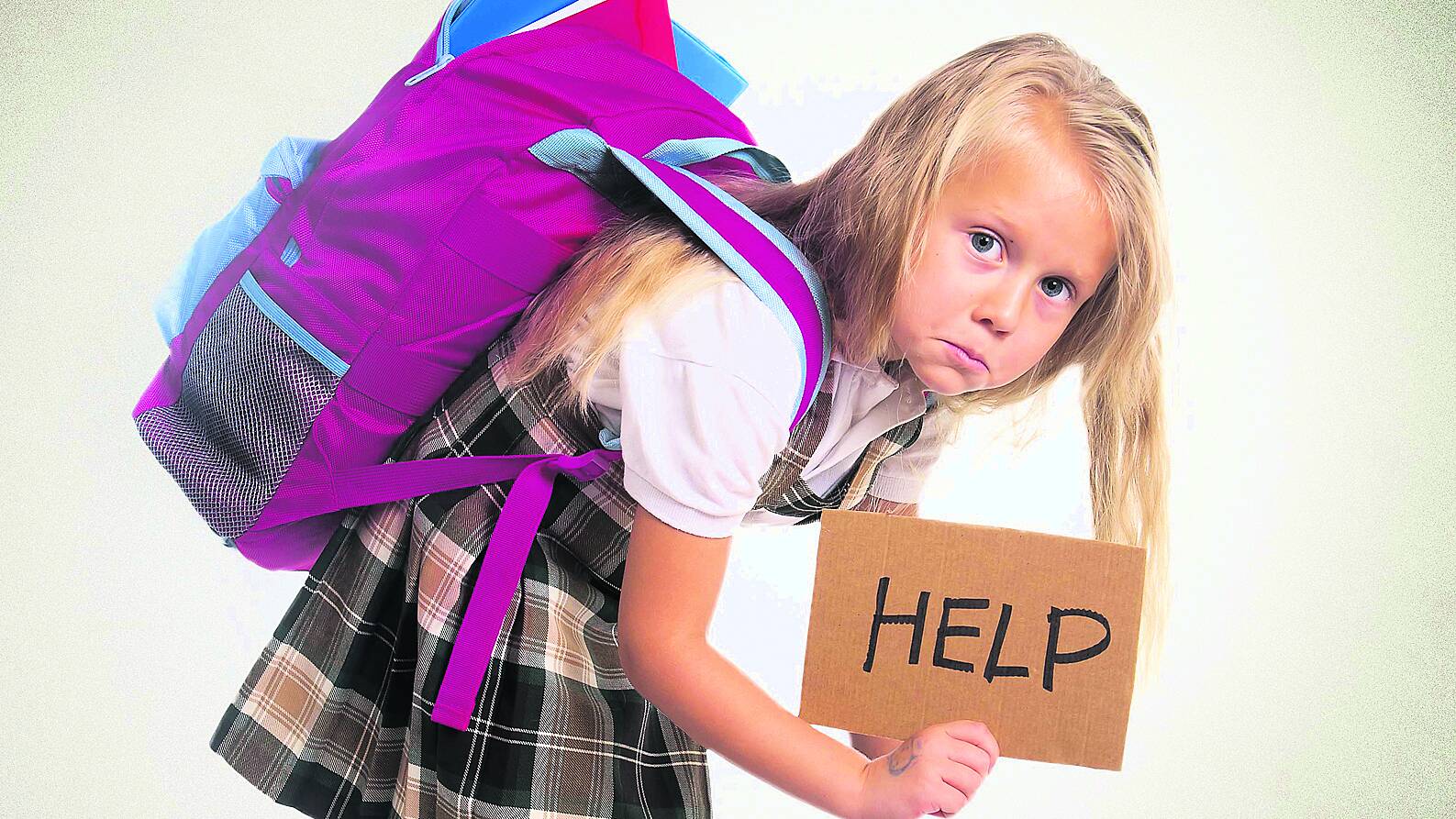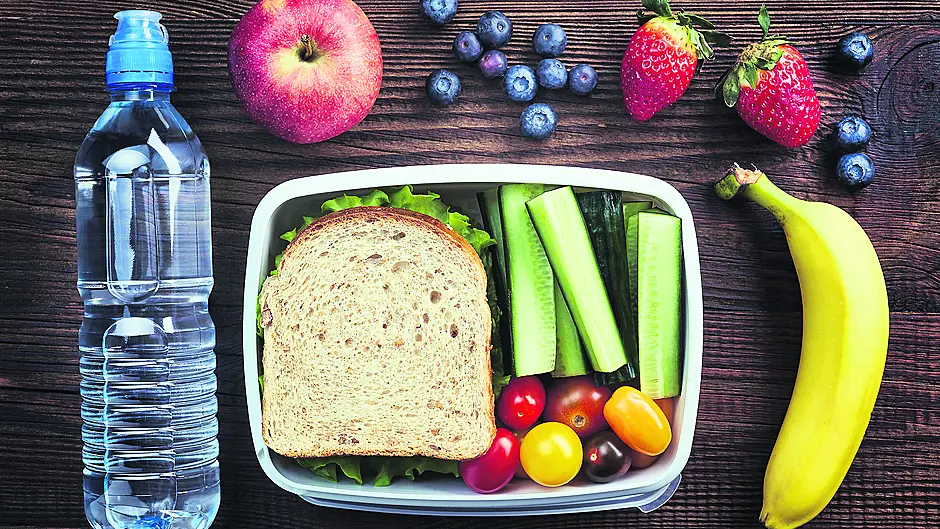Households all over West Cork are getting ready to go back to school this week. Emma Connolly asked some local experts to share their tips to make it all go as stress free as possible
FOOD MATTERS
Blaithin O’Neill, West Cork based dietitian (blaithinoneillnutrition.com)
• September is a great time to add more structure into mealtimes for all the family after the relaxed eating habits over the summer. Breakfast is called the most important meal of the day for good reason, especially for children.
A wholesome balanced breakfast, fuels the brain for a busy day of learning, improves focus and balances blood sugars. When planning out breakfast, we want to avoid sugary cereals or slices of toast and jam as this will cause peak and dips in glucose levels which can impact attention levels at school.
• A simple breakfast of two boiled eggs (protein + fat) with wholemeal bread (wholegrain carbohydrates) and cherry tomatoes ticks all the boxes for a balanced hearty breakfast. Or how about porridge (wholegrain carbohydrates) made with milk and served with Greek yogurt (protein + fats), berries, and banana. Smoothies can also be a great option but try avoiding filling it up just with fruit as this can provide a condensed source of fruit sugar. Instead try this power smoothie recipe, made with 1 banana, frozen berries, 2 tbsp oats (wholegrain carbohydrates) milk, yogurt(protein), spinach and 1 tbsp of peanut butter (fats.)
• The real stress of going back to school is what to put in your child’s lunch box! There is a constant pressure on parents to ensure lunches are nutritionally balanced and ‘exciting.’ The real truth here is, if we can provide our children with a prepared lunch for school every day then we are very lucky. Many kids like the picnic style approach which can be a nice way to vary up lunch and introduce different food groups. To prepare a balanced lunch aim for one food from the carbs group (bread, pasta, wrap, couscous, wholegrain crackers); one protein (chicken, eggs, tuna, falafel, hummus); one fats (cheese, butter/mayo, avocado, yogurt, nut butter); one fruit (chopped apple, banana, pear, strawberries etc) and vegetables (cucumber, salad leaves, sweetcorn, cherry tomato etc
• If you have a fussy eater who usually won’t eat cucumber or avocado for you, throw it in anyway. Kids eat better with their peers and may surprise you!
• For an after-school snack that’s going to fill your child, ideally you want to combine a fibre rich food with a source of protein or healthy fats. Some examples could be beans on toast, yogurt with fruit, apple with peanut butter and rice cakes, hummus and carrot sticks or even cheese on toast.
• The most important thing above all of this, is to start with some meal planning.
If it’s not in the fridge, it’s not going to happen. Take some time to sit down and plan out the meals ahead over the next week. Make your shopping list from this and it will reduce stress levels massively.

MIND YOUR BACK!
Paudie O’Donovan, physical therapist,
Skibbereen
• Heavy school bags can cause many problems. The obvious one is back pain, but also rounding of the shoulders, poor body posture, fatigue and muscle strain which will ultimately lead to back pain
• A lot will come down to the age and strength of the child. Guidelines say that a 50lb child should carry a maximum of 7.5lbs and a 100lb child should carry 15lbs etc. Under guidelines a child could carry 15%-20% of their body weight
•The choice of school bag is also important and has a role to play. Ideally it should be padded and have two straps to distribute the weight.
• Students should be encouraged to repack their bags on a daily basis and avoid dragging around unnecessary items and books they don’t need.
• They should also be mindful on how they lift their bag. Always bend the legs and try not to twist.
SETTLING AT SCHOOL
Timoleague Community Playschool
• IF your child is feeling anxious it’s a good idea to introduce something at home like a book about starting school/going back to school.
Some suggestions are: The Kissing Hand by Audrey Penn; The Invisible String by Patrice Karst or Owl Babies by Martin Waddell.
• It’s also a helpful distraction if you time your arrival at school with a friend so they can walk in together.
• The best approach is to try to part with your child once you drop off and not to linger.
They will be in safe hands, and they generally tend to relax after just a few minutes.
• Parents of pre-schoolers can tell teachers what their child most likes to play with to make that first morning easier.
MANAGING WORKLOAD
Ingrid Seim, Avenues Consultancy and Coaching
• Some tasks are non-negotiable, you just have to get on with it, but others aren’t. So before you dive into something ask yourself first, ‘does this bring me/or my family real value?’ Every family is different so for some that could refer to an after-school activity, or what you’re planning on cooking for dinner. Pausing, and taking a moment to ask yourself this question is a useful exercise.
• Know your limits and accept them. Express without guilt or shame that you can only do so much. There are only so many hours in the day.
• Lists are useful – not always to see what you need to do, but to show clearly what you can’t do. When we feel overwhelmed we often don’t know where to even start. Writing things down (including meal planning) gives you a structure and you can see what’s achievable and importantly what’s not. You might actually have too much on.










